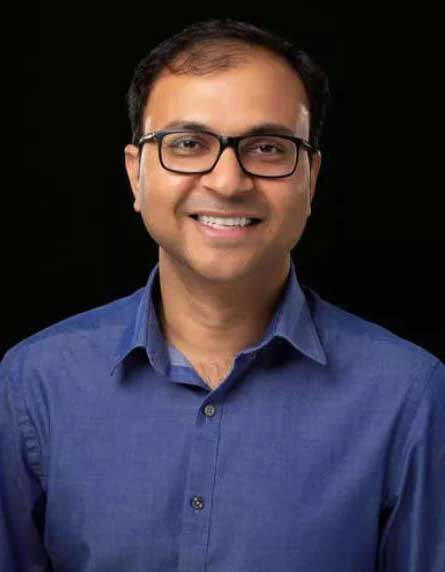Heart failure is a growing problem. According to the Heart and Stroke Foundation, an estimated 750,000 Canadians live with heart failure and an additional 100,000 people are diagnosed annually with the progressive condition. The condition impacts quality of life, with symptoms like breathlessness, heartbeat irregularities, weakness and fatigue.


Dr. Vaibhav Patel, PhD, a researcher at the Cumming School of Medicine’s Libin Cardiovascular Institute, is focused on developing new therapies for the condition.
The Patel lab is looking at ways to treat the heart following a heart attack with tiny particles found in stem cells, called exosomes. The goal is to prevent heart failure, which often develop after heart attacks.
His work has shown that exosomes can both repair damaged tissue and prevent changes in the heart, such as scarring, after a heart attack.
He continues to study these particles in hopes of discovering the tiny fragment of genetic material, micro-RNA or DNA, that is responsible for the protective effect. This would enable researchers to focus on finding treatments using that particle, thereby bypassing any potential immune responses associated with using whole cell treatments.
Patel is also working on a novel way of delivering exosomes to the surface of the heart, an idea that has great potential clinical impact.
“In our research using mice, we have learned it is ideal to continue providing exosomes after a heart attack for several days and weeks following the event, but that is not practical,” says Patel. “Using a gel to deliver the exosomes to the heart’s surface after surgery would result in slow, sustained release of the particles into the heart. This is the novel approach we are working on.”
Patel’s work has been noticed by the country’s top cardiovascular researchers. He is the 2022 recipient of the prestigious Canadian Cardiovascular Society (CCS) Young Investigator Award in the category of Basic Science.
Patel is pleased to be recognized with Canada’s top award for early-career cardiovascular researchers.
“I am beyond privileged,” says Patel. “It is a huge honour that this group has recognized the potential of our work.”
Patel was nominated for the award by cardiovascular research powerhouses and leaders within the Libin Cardiovascular Institute, Dr. Paul Fedak, MD, PhD, Dr. Robert Rose, PhD, and Dr. Todd Anderson, MD.
“The institute has been recognized nationally and internationally for its innovative research since its creation, and Dr. Patel’s award is proof that world-class cardiovascular research continues in Calgary,” says Fedak, director of the Libin Cardiovascular Institute.
Rose agrees and adds Patel’s work has the potential to lead to a better understanding of the basis for heart failure after myocardial infarction, and to lead to improvements in treatment strategies for patients impacted by these conditions.
“Dr. Patel has developed a novel and innovative research program that is both mechanistic and translational,” says Rose. “Given the number of people impacted by these debilitating conditions, Dr. Patel’s studies are of great importance.”
Patel also received a prestigious 2022 New Investigator Award from the Heart and Stroke Foundation (HSF).







































